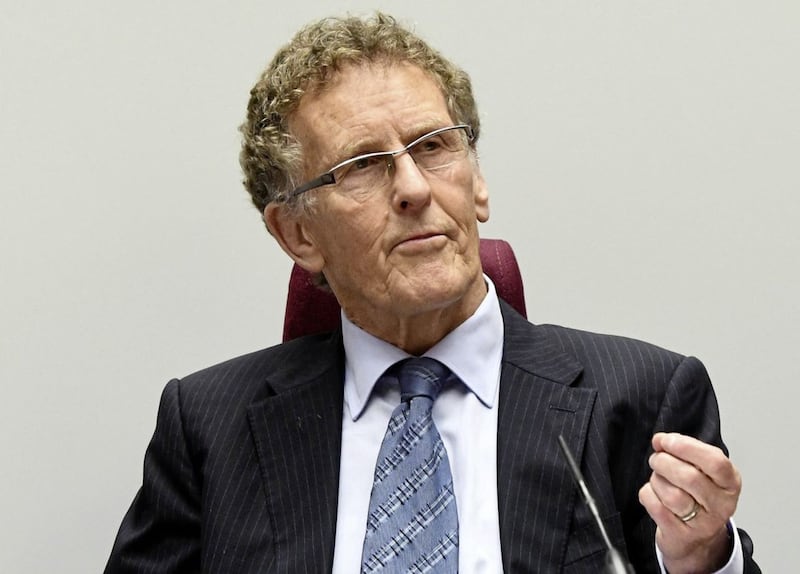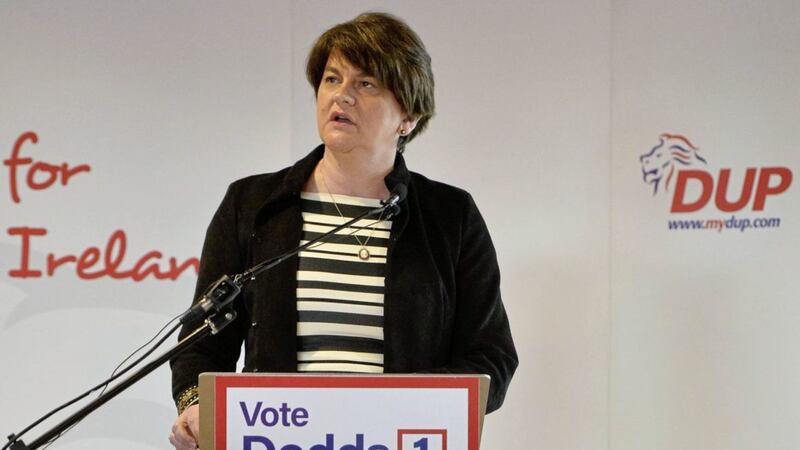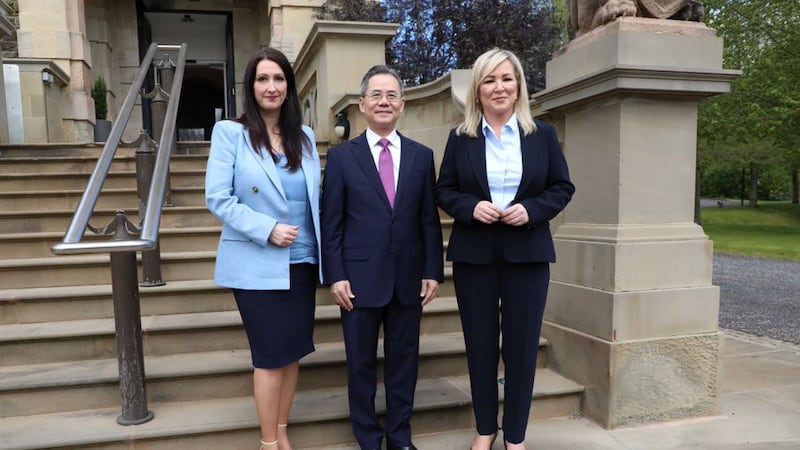DUP leader Arlene Foster is likely to have to wait until September before learning of any censure over her handling of the botched Renewable Heat Incentive (RHI) scheme.
It is understood that Sir Patrick Coghlin's much-anticipated report into Stormont's flawed green energy scheme is not expected to be published until after the summer.
The schedule for releasing the RHI inquiry's findings raises questions over the potential for Stormont's parties to reach agreement before the report is made public.
The two governments believe the current negotiations offer a "genuine but narrow window of opportunity" to secure a deal before the end of this month.
Sinn Féin has previously refused to countenance restoring the devolved institutions with Mrs Foster as first minister, however, the party has since relaxed its precondition.
Nevertheless, the retired judge's assessment of the former enterprise minister's oversight of RHI is expected to be damning, prompting renewed concern among the DUP's political rivals about agreeing to her returning to the Executive Office.

Sir Patrick's report is also likely to strongly criticise other DUP ministers and the party's backroom staff, some of whose relatives were claimants of the scheme.
Set-up in January 2017 by former Stormont finance minister Máirtín Ó Muilleoir, as one of his final acts in office, the Sinn Féin MLA suggested at the time that the inquiry's report would be published within six months.
The inquiry team began their work three months later, with oral evidence sessions getting underway the following November.
The live-streamed questioning of witnesses, including former Stormont ministers, their special advisers and senior civil servants, concluded last December.
But supplementary evidence gathering, coupled with a process that gives those singled out for criticism a right to reply ahead of publication, means the inquiry's findings will not be disclosed in the near future.
Alliance leader Naomi Long said she understood that the process of writing to individuals censured in the forthcoming report had yet to begin.
She said this process would involve a "protracted period of toing and froing" meaning publication of the report was "likely to be autumn at the earliest".
Mrs Long said she believed the governance issues the RHI scandal brought to the fore were of greater importance than attributing blame to individuals, however, she added: "It doesn't excuse the fact that ministers were not across the detail of their brief."
Asked whether the report would impact on efforts to restore the devolved institutions, she said it would depend on how those singled out for criticism responded to the report.
"I think if people continue, as unfortunately seemed to happen during the time of the inquiry, to bury their head in the sand as though this was not an issue, then I think people will find that much more of an issue that's difficult to deal with," she said.
"You have to have trust and confidence and we all know that has been damaged at a whole series of different levels."
A spokesman for the RHI inquiry said Sir Patrick was still working on the report and no date had been set for publication.
Designed to encourage take-up of renewable biomass technology, the RHI's generous, uncapped subsidies ultimately proved its undoing, as the spiralling costs threatened to burn a huge hole in Stormont's finances for decades to come.
The scandal is widely regarded as the catalyst which brought down the Stormont institutions in January 2017.








